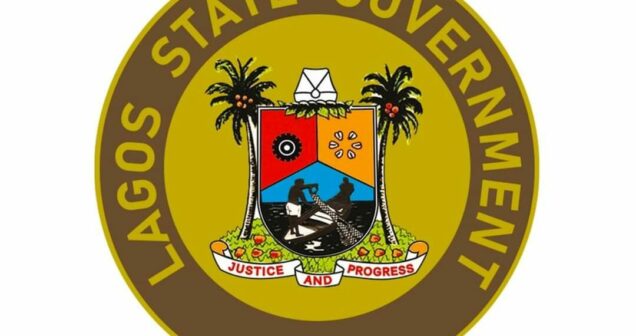The Lagos State Government has reaffirmed its commitment to deepen collaboration with all 57 Local Government and Local Council Development Area (LCDA) chairmen to enhance environmental sustainability, flood control, and waste management across the state.
This was disclosed on Wednesday during a strategic meeting held at Protea Hotel, Ikeja, convened by the Commissioner for the Environment and Water Resources, Mr. Tokunbo Wahab. The session brought together top government officials, including the Secretary to the State Government, Barr. Bimbola Salu-Hundeyin; Commissioner for Local Government, Chieftaincy Affairs and Rural Development, Mr. Bolaji Roberts; Commissioner for Transportation, Mr. Oluwaseun Osiyemi; Special Adviser on Environment, Engr. Olakunle Rotimi-Akodu; permanent secretaries, heads of agencies, and all council chairmen.
In her remarks, the Secretary to the State Government, Barr. Bimbola Salu-Hundeyin, said the meeting reflected Governor Babajide Sanwo-Olu’s commitment to building an environmentally responsible city through shared responsibility and partnership with local councils.
“Environmental sustainability begins at the grassroots. It is not a state-level project but a community responsibility that must be driven locally,” she stated. “The state government will continue to provide policy direction and institutional support, but leadership and enforcement must come from the LG and LCDA chairmen who are closest to the people.”
Salu-Hundeyin urged council bosses to prioritise drainage clearing, waste segregation, and enforcement against indiscriminate dumping, stressing that environmental management should be treated as a daily duty rather than a periodic exercise. She assured that the state would strengthen intergovernmental synergy and ensure local councils are fully integrated into environmental reforms.
Commissioner Wahab explained that the meeting was aimed at harmonising the state’s environmental programmes with those of local councils and addressing operational challenges that hinder effective service delivery.
“We have identified gaps in enforcement, flood prevention, and waste management. This meeting is about closing those gaps through partnership, not blame,” Wahab said.
He lamented the growing issue of illegal land reclamation and warned that the state had commenced strict enforcement to restore degraded areas and protect natural drainage paths. “We are going after illegal reclamation sites. Before you reclaim any land, you must have a proper Environmental Impact Assessment and stormwater discharge plan. Otherwise, we will remove such reclamations,” he warned.
Wahab also reaffirmed the ban on street trading, noting that it contributes to poor sanitation and obstructs pedestrian movement. “Street trading will no longer be tolerated. Local governments must enforce this jointly with the state task forces. Our goal is to restore order and cleanliness in markets and major roads,” he added.
Speaking on behalf of his colleagues, Chairman of Ibeju-Lekki Local Government and Conference 57 leader, Hon. Sesan Olowa, commended the meeting as timely and noted that local councils face logistical challenges in waste disposal.
“We often have to wait several days to offload waste at Olusosun or Solous sites due to access issues,” Olowa said, adding that councils were affected by the closure of the Okorisan landfill for airport development. He proposed that council clusters establish mini Transfer Loading Stations (TLS) to ease pressure on major landfills, generate jobs, and improve waste turnaround time.
“In Ibeju-Lekki, we have engaged youths with 20 tricycles collecting thousands of waste bags weekly. It’s a working model that other councils can replicate,” he added.
In his closing remarks, Wahab said the discussions would guide the next phase of the state’s environmental reforms, emphasizing that the Sanwo-Olu administration is focused on delivering measurable outcomes.
“Our target is a flood-free, waste-efficient, and environmentally conscious Lagos. But that will only happen when councils take ownership of the process,” he said.
He pledged that the state government would continue to strengthen enforcement, support the creation of mini-TLSs, and improve landfill management in partnership with local councils.
“This meeting marks a new chapter. We are taking environmental governance to the grassroots, where real impact happens,” Wahab concluded.
With the renewed collaboration, Lagos State aims to consolidate its efforts toward a cleaner, safer, and more sustainable environment.















